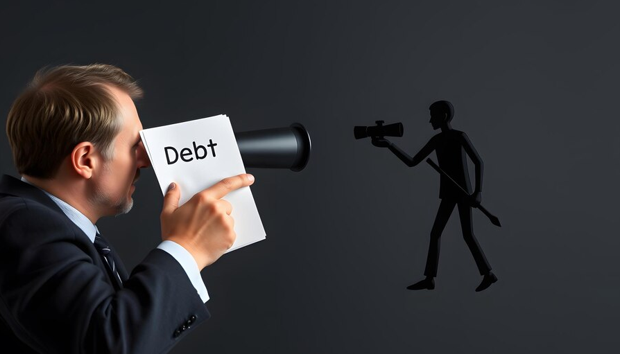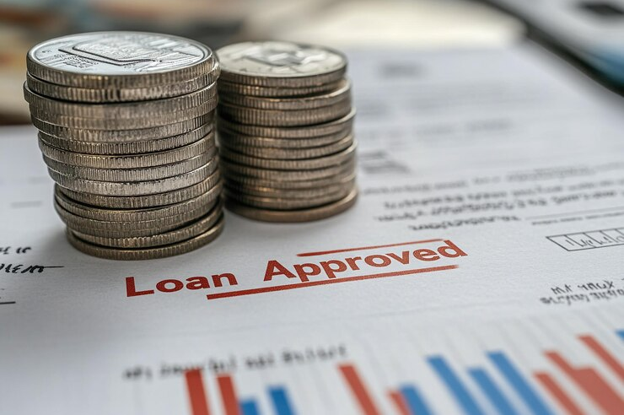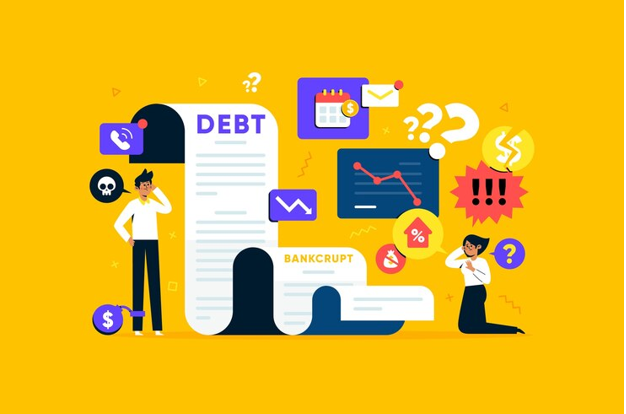
Dealing with debt collectors could be stressful when they cannot produce proper documentation of ownership relating to the debt that they seek. But don’t worry; you are not left helpless. A proper challenge of any such debt collector will prevent you from paying the debts that you may not owe, as your legal rights have been violated. Our extensive guide will shed light on how to challenge a debt collector who cannot deliver proper documentation. Let’s dive in!
So, before challenging the debt collector, one should know what exactly proof of ownership is and also why it is important when disputing debts. Under the circumstances of selling your debt to a third-party collection agency, the agency has to have genuine documents proving that they lawfully own the debt. This “proof of ownership” is important because it can verify whether the collector really has a legitimate claim, and you are indeed obligated to pay.
Most of these types of debt collectors purchase portfolios of debts in bulk without evidence for any of them. They rely mostly on threats against you to receive payment from you without issuing the proof of ownership. But without the proof of ownership, it is legally not valid.
The Consumer Financial Protection Bureau reported in 2021 that almost 35% of all debt collection complaints it received were regarding an attempt to collect debts that were either not owed or not verbally communicated. It goes to show that paying a debt based on unverified collections may be faulty, and collectors need to provide accurate documentation before accepting a payment.
The FDCPA is a federal law that was enacted to protect the consumer against abusive debt collection practices. Under the FDCPA, you are allowed to request validation of any debt a collector may claim you owe. The FDCPA further prohibits the collection of debts using deceptive or unethical practices. In this case, if a debt collector cannot provide you with proper proof of ownership, then they may be in violation of the FDCPA, and you are not required to pay the debt.

Now that you have learned your rights and the importance of proof of ownership, here’s how to contest a debt collector when you don’t have appropriate documentation.
Demand a debt validation letter, first of all. The FDCPA permits you to dispute the debt or ask for validation within 30 days from the time you encounter a collection agency for the first time. This letter compels the collector to mention the following:
You can take a formal validation request letter that clearly states you dispute the debt and demand proof of ownership. Do not forget to send it by certified mail so that it will be possible to track the receipt of your application.
Once you receive the debt validation letter, make sure that you go through it page by page and check for the following;
Additionally, if the creditor does not have proper documentation or the information does not match your records, you may also further dispute the debt.
If the debt collector provides incomplete or inaccurate information, you should formally dispute the debt in writing. In your dispute letter, outline the inaccuracies and demand comprehensive proof. According to a CFPB study, about 60% of debt disputes result in a collector ceasing collection efforts. This demonstrates the power of disputing questionable debts.
Every state has a statute of limitations on how long a creditor or debt collector can sue you for unpaid debts. If the statute has expired, the debt is considered “time-barred,” and you can no longer be sued for payment. However, collectors may still try to collect the debt, even though they can’t legally enforce it.
Before agreeing to pay any debt, verify whether it’s still within the statute of limitations. A payment or even acknowledgment of the debt can reset the statute of limitations, so it’s crucial to avoid making payments before confirming this information.

Once you’ve challenged the debt collector, there are several potential outcomes depending on the collector’s ability to provide proof of ownership:
If the collector cannot provide proper documentation, they may cease collection efforts. This often happens when they lack sufficient evidence to prove the debt is valid.
Sometimes, after a failed validation attempt, collectors sell the debt to another agency. In this case, you may need to restart the challenge process with the new collector. Be vigilant and continue to demand proof of ownership.
If the collector provides adequate proof, you may choose to negotiate a settlement. Collectors often accept a lump sum payment or a reduced amount to close the account. Before agreeing to a settlement, ensure you understand the terms and obtain a written agreement.
In rare cases, collectors may pursue legal action to collect the debt. However, if they cannot provide proof of ownership, their case will likely be dismissed. If you’re facing a lawsuit, consult with an attorney to ensure your rights are protected.
Proof of debt ownership isn’t just a technicality—it’s your first line of defense in ensuring you don’t pay a debt you don’t owe. Without proper documentation, collectors have no legal right to pursue you for payment. For more insight into why proof of ownership is essential, read our blog on Why Proof of Debt Ownership is Important in Winning Debt Disputes.

Debt collectors may employ various tactics to pressure you into paying, even without proper proof of ownership. Some of the common tactics include:
Repeated phone calls, letters, or threats of legal action are common intimidation tactics. Under the FDCPA, collectors are limited in how often and when they can contact you.
Collectors may misrepresent the amount you owe, or claim they have authority to take legal action when they don’t. It’s critical to document all communications and ensure the collector is adhering to legal standards.
Harassment, including verbal abuse or threats, is illegal under the FDCPA. If you believe you’re being harassed, you can file a complaint with the CFPB or Federal Trade Commission (FTC).
For more tips on stopping harassment, see our blog on How to Secure Proof of Debt Ownership and Stop Collector Harassment.

While it’s possible to challenge a debt collector on your own, hiring a professional debt validation service can offer significant advantages. These experts know how to navigate debt disputes, ensuring your rights are protected while providing peace of mind.
Key Benefits of Professional Services Include:
If you’re considering this route, check out our blog on the Top 6 Benefits of Hiring Professional Debt Validation Services for a deeper understanding.
Challenging a debt collector without proper proof of ownership is not only your right but also a smart financial move. By demanding validation, scrutinizing documentation, and understanding your legal protections, you can avoid paying debts you don’t owe.
If you’re facing a debt dispute and need professional help, consider contacting US Debt Validation. With years of experience in validating debts and defending consumer rights, we can help you ease your debt challenges and secure the best possible outcome.
Yes, you can request proof of ownership at any stage of the debt collection process, even if you have already made payments. If the debt collector fails to provide adequate proof, you may be able to challenge the remaining balance or negotiate a settlement. It’s crucial to ensure the debt is legitimate before continuing to make payments.
If a debt collector refuses to provide proof of ownership after you’ve requested it, they are violating the Fair Debt Collection Practices Act (FDCPA). In this case, you can file a complaint with the Consumer Financial Protection Bureau (CFPB) or your state’s attorney general’s office. You may also have grounds to sue the debt collector for harassment or improper practices.
No, simply requesting debt validation does not reset the statute of limitations on a debt. The statute of limitations only resets if you acknowledge the debt or make a payment. It’s important to request validation in writing and avoid making payments until you’re sure the debt is legitimate and within the legal timeframe for collection.
Under the FDCPA, debt collectors must stop all collection efforts until they can provide you with validation of the debt. However, there’s no specific timeframe in which they must respond. If they do not respond and continue collection attempts, you can file a complaint and potentially pursue legal action.
Take control of your financial future today — don’t let debt collectors intimidate you into paying what you don’t owe.
Debt can appear intimidating as their details or ownership rights are unknown. One of the most effective ways to protect yourself and dispute any inaccuracies in debt claims is to secure proof of debt ownership. One’s right to own proof of debt would be an ultimate way of protecting rights while contesting a potential mistake on a claim of debt. The entire procedure confirms the validity of a debt and provides strength to the hands of debtors in fighting against faulty, inflated, or outdated obligations. This post will discuss why proof of ownership in debt is so important and how you can protect your financial future.
Before heading into the importance of proof of ownership of debt, the necessity of understanding what ownership of debt is essential. Ownership of debt, in simple words, is referred to as a legal entity or person who is legally allowed to collect the amount owing on the debt. A lender, bank, or even a third-party debt collection agency that has obtained the debt from the original creditor could be involved.
When a debt is sold, it entails the transferring of legal rights associated with collecting the debt. In most cases, this is where it becomes complicated for the borrower because without proper documentation and verification, the claims unverified, often causing debtors to pay more than needed or deal with redundant debt.
Proof of debt ownership is a formal document supplied by the debt owner or collector to validate that they own the debt and legally entitled to collecting the debt. This proof includes:
This is crucial as it eliminates uncertainty over debt legitimacy. It makes debt collectors compulsorily liable to provide such information upon demand. Most of them, however, deny debtors by withholding documents partially or totally.
Fraudulent claims over debts are on the rise, and different debtors face harassment of debts that are not theirs or are false. The Federal Trade Commission (FTC) has reported 4.7 million fraudulent reports filed in the U.S for the year 2020, with debt collection fraud forming one of the major components. Without showing ownership of debt, the debtor could be easily conned. Proofing is secure because it gives a sense of security, knowing that you are dealing with the right collectors.
Debt, especially when sold multiple times often tends to inflate fees, penalties, and interest. Receiving proof of debt ownership grants you a detailed breakdown of the amount of debt owed. You can then verify the claims made against you to avoid overpaying above the legal limit.
Sometimes, debt collectors are aggressive in trying to collect debts bordering harassment. Lacking proper proof of ownership of the debt, you might find yourself continuously fighting off calls and letters. Once you have asked for proof and it fails to deliver, debt collection harassment may be legally stopped. Learn more about how proof of ownership can stop harassment.
If the creditor or the collector cannot present debt ownership evidence that is valid, they may not have the legal ground to collect the said amount. This is highly important if you determined to take your case into court or if you need to defend yourself against the lawsuit filed by the debt collector. Proof of debt ownership can be a strong defense tool if creditors and collectors do not validate it.
Ensuring that only valid debts appear on your credit report may clear off invalid debt claims in the credit report that may jeopardize your future loan applications and the interest rates attached to them. The proof of ownership of your debt assures you that all debts appearing in your credit report are valid, and thus reflect the true account. By law, any debt collector who cannot prove ownership is legally compelled to erase the claim on your report, which works to your credit score’s advantage.

When disputing debt, the burden of proof lies with the debt collector, not the debtor. According to the Fair Debt Collection Practices Act (FDCPA), debt collectors must provide validation of the debt upon request, and this includes proof of debt ownership. Here’s how you can leverage this proof to dispute the debt:
The first step to disputing a debt is sending a written request to the collector, asking for proof of debt ownership. This initiates the legal process where the collector must pause all collection activities until the proof is provided. If they fail to comply, you may not be liable for the debt.
Once you receive proof, cross-check it with your records. Are the amounts accurate? Is the timeline consistent? If the collector provides inaccurate information, it weakens their claim to the debt and strengthens your case for dispute.
If the collector cannot provide sufficient proof that they own the debt, you have a legitimate ground to dispute their right to collect. This is particularly important for debts that have been sold multiple times or are older, where the paper trail may be incomplete.
Debt is a widespread issue across the United States, and disputes regarding debt ownership are alarmingly common:

While the importance of proof of debt ownership is evident for debtors, it is equally critical for borrowers and investors. Financial markets depend on transparency and trust. If you’re an investor purchasing debt portfolios, ensuring proper documentation and ownership of the debt is essential to prevent financial loss.
For borrowers, especially those with multiple loans, it is crucial to have clear records of which entities hold their debt. Miscommunication or lack of proof can result in double payments, inflated balances, or even foreclosure in extreme cases.
Understanding debt ownership and disputing unverified debts can be daunting. At US Debt Validation, we offer comprehensive debt validation services to help you challenge incorrect debt claims and stop illegal collection activities. Our team ensures that every step of your debt dispute handled professionally, from securing proof of debt ownership to representing your case needed.
Not only can this protect you from fraudulent claims, but it can also save you significant amounts in unwarranted fees and prevent damage to your credit.
In a world where debt collectors are becoming increasingly aggressive, securing proof of debt ownership is one of the most powerful tools debtors, borrowers, and even investors have at their disposal. It helps protect you from fraudulent claims, prevents overpayments, and ensures fair treatment under the law.
If you’re facing debt collection efforts or simply want to verify the accuracy of your debts, don’t wait. Request proof of ownership and, if necessary, consider professional assistance to steer the process. Protect your financial future today!

Yes, if the statute of limitations on a debt has expired, the debt is considered “time-barred.” This means the collector can no longer sue you to collect it, though they may still attempt to contact you. You can dispute the debt, and it’s important to note that making any payments may reset the statute of limitations, making the debt collectible again.
If the debt collector cannot provide valid proof of debt ownership, they are legally required to cease collection activities. They also cannot report the debt to credit agencies. In some cases, this could lead to the removal of the debt from your credit report, and you would no longer be liable for the debt.
Under the Fair Debt Collection Practices Act (FDCPA), a creditor or debt collector must stop all collection efforts until they provide proof of debt ownership and validation. While there is no specific time frame outlined in the FDCPA, collectors generally respond within 30 days.
No. A debt validation letter is a document you request from a debt collector to verify the details of a debt. Proof of debt ownership, on the other hand, is a specific part of that validation process, ensuring that the entity trying to collect the debt is the rightful owner.
Yes, you can request proof of debt ownership at any stage of the collection process, even after you’ve made payments. It’s important to verify that the collector has the legal right to collect, especially if you have doubts about the legitimacy of the debt.
Yes, proof of debt ownership applies to all types of debt, including medical debt. Medical bills often sold to third-party collectors, and it’s crucial to ensure that the entity attempting to collect the debt has the proper legal authority to do so.
You can check a debt collector’s licensing status through your state’s Attorney General’s office or the Department of Consumer Affairs. Most states require debt collectors to licensed to collect within their jurisdiction, and failing to be licensed can invalidate their claims.
Yes, once you have proof of debt ownership and the debt is verified, you can negotiate a settlement. Many collectors are open to negotiation, especially if they believe they may not recover the full amount otherwise. Be sure to get any settlement agreement in writing to avoid future disputes.
If your debt has been sold multiple times, the current collector or debt owner is responsible for providing proof of debt ownership. They should also able to provide a clear chain of custody, showing how the debt was transferred from the original creditor to the present collector. This documentation ensures that the current collector is the legitimate owner of the debt.
When it comes to handling a debit and credit situation in a business, you may end up facing a debt dispute. One of the biggest reasons being the debtor being uncertain about the solemnity of the debt. From billing errors to fraud and misunderstanding, debt disputes can complicate your financial stability. Most validation companies in the US follow a tried-and-test approach of professional debt verification to resolve such issues.
Let’s explore why professional debt verification is essential and how it works.
Debt verification is a detailed process performed by individual debtors or attorneys to verify the legitimacy of the debt. It is a proof for when any debtor claim a dispute, the lender or collectors can offer proper documentation, proving that it’s valid. Other documents that go along with debt verification is loan agreements, billing statements, and other legal financial records.
The process of debt verification starts with debtor questioning the validity of the debt. Most debtors request proof from the creditor and they have to provide a document with accurate information to its response. If the lender can’t give the verification documents, it may be invalidated and debtor can get the opportunity to negotiate or may free them from returning the debt.
Most professional debt verification and debt validation services are there for the protection of both debtors and creditors. It caters to both sides for the verification of the debt’s accuracy.
Following are a few reasons why professional debt verification can be help resolving disputes;
The biggest cause of disputes debts are errors in billings or record-keeping. The main objective of hiring professional debt verification is that they thoroughly review every documentation needed for debt verification. It helps debtors not to pay any additional amount to what they actually owe and lenders to get the money on time.
Most frauds in financial sector is related to debts and scammers, nowadays, are acting as legitimate creditors to take money from debtors. Professional verification can identify any fraudulent debts by asking for legal documentation to prevent any false claims.
After the professionals do the verification, debtors can negotiate from the position of power. They have proper validity of the debt and can adjust repayment plans so that debts can be settled for reduced amount. If there will be no document, the dispute with drag and both parties will be left with no benefits.
Disputed debts can become more complicated if professional debt verification is overlooked. Here are some common problems that can arise without it.
Without verifying a debt, borrowers may end up paying more than they owe. Errors in the amount or charges that were already settled can slip through unnoticed. Over time, this leads to unnecessary financial stress and the depletion of funds.
In some cases, disputed debts can escalate to legal action. Borrowers may face lawsuits from creditors or collection agencies. Without proper debt verification, it becomes challenging to build a defense, increasing the chances of an unfavorable court ruling.
Another major harm that debt dispute can cause is to have a negative impact on the debtor’s credit score. If the debt isn’t paid or report as delinquent then it’ll affect the worthiness of the debtor. It can also have bad impression for future loan approvals, interest rates, and even job searching.
If you want to get your debt verified professionally, then you need to follow a series of structured steps. We have broken down the process for your ease:
Initially, debtor needs to submit a written request to the debt collectors or creditors. The purpose of this request is to start the verification process which has to be completed within 30 days of receiving the notice.
After receiving the request, the creditors gather all the documentations relevant to the debt. It may include:
After that professional debt verification agency reviews documentation thoroughly to confirm the validity of the debt. The review process involves detailed checking for errors, confirming the amount owed, and verifying that the debt belongs to the debtor.
As the review process ends, professional debt verification attorneys prepare a verification report. You may find all the details of the finding in the report with clear breakdown of debt’s accuracy. They also highlights discrepancies so that both creditors and debtors can take corrective measures.
Once debt is verified, the debtors can take initiatives to either settle the debt or in case of invalidity can dispute the debt. The next step can involve negotiation for payment plan or requesting to reduce the amount.
While borrowers can initiate debt verification themselves, professional debt verification services offer several advantages. Some of them are:
Debt verification services have team of experts who specialize in reviewing and validating debts. They are certified to spot discrepancies, errors, and fraudulent claims, so that you get through and accurate results.
If you’re running a business and took multiple loans from several creditors, handling the verification process yourself can be time consuming. Professionals can streamline the process by handling all the paperwork, documentation, and communication with creditors. This way debtors can focus on dispute resolution instead of getting stuck in the technicalities.
Another advantage of professional debt verification services is that they make sure that all steps are compliant with the Fair Debt Collection Practices Act (FDCPA). It protects debtors from unethical practices and monitor the legal boundaries of the verification process.
Professional debt verification is an essential tool for settling disputed debts, verifying the accuracy of debts. It also protects debtors from fraud and offer them legal protection. By choosing professionals, debtors can resolve debt disputes more efficiently and with greater confidence. If you’re facing a debt dispute, consider reaching out to a professional service like US Debt Validation. They commit to offer expertise and follow thelegal standards so your debts are verified accurately, giving you peace of mind and a clear path to settling any outstanding disputes.
It’s really stressful to have to deal with constant harassment from debt collectors. And if you are a homeowner, borrower, or real estate investor, you need to protect yourself from aggressive collection practices, especially if you think that debt they are persecuting you for is not even a valid one. One of the most powerful tools you can use to defend yourself is acquiring proof that they own the debt, which is called debt validation.
In this blog, we will explain how a person can secure proof of ownership of debt, how debt validation services keep you safe from unlawful collections, and will walk you through the process toward reclaiming control over your financial peace.
Debt validation is basically the process through which a debtor may request a debt collector to prove whether they own or have legal right to collect on a particular debt. In proof, the borrower should state who owns the original debt and how the collector involved in collecting the debt is related to it. The FDCPA claims that you are allowed to do this, and collectors have to respond according to your request.
Debt validation services assist in this regard, forcing collectors to play by the book and provide necessary documents before proceeding with debt collection activity.
Evidence of debt ownership is not only for clarity but also for protection. FDCPA gives you the right to request validation, which will confirm whether the debt is genuine and if the collector is legally entitled to collect it. Many debts are sold multiple times with errors, duplicate claims, or wrongful collections. According to the Consumer Financial Protection Bureau in 2020, nearly one-third of those consumers carrying debt in collections said they had received collection calls about debts they did not owe.
Unless you acquire proof of ownership of your debts, there is some risk that you might be assessed for debts to which you are not actually liable, pay off debts you paid long ago, or pay off debts that belong to someone else.

Here’s a step-by-step guide to securing proof of debt ownership and stopping harassment by debt collectors:
The FDCPA is a very powerful statute that regulates how debt collectors can communicate with consumers. Key rights under the FDCPA are:
First thing’s first, send a Debt Validation Letter. At the onset, the letter should simply state that you are requesting validation of the debt in question and expect the collector to provide documentation that confirms:
Make sure you mail the letter within 30 days from the date that the debt collector first contacted you. For more on what to include in a debt validation letter, check out our blog post.
When the validation letter is sent, the collector must stop all collection activities until they can validate it. When the collector cannot validate, he or she is legally obligated to stop efforts to collect the debt. You have the right to file a complaint with the FTC and your state’s Attorney General if the collector continues to harass you without validation.
If you receive validation from the collector, verify documents thoroughly. You must notice:
Valuation of debt can also show hidden, handed-from-hand-to-hand unsecured debt, therefore full of mistakes. For more about the risks of unsecured debt, see our blog on “Understanding Unsecured Debt: Risks and Implications.”
If the process seems overwhelming or if you are receiving vague or incomplete validation, it may be time to seek professional help. Debt validation services handle this entire process on your behalf, using their expertise to ensure collectors comply with federal laws. They handle the communications with collectors and scrutinize the documentation to protect your rights.
Companies like US Debt Validation can assist you in stopping harassment by collectors and provide guidance on your next steps.

In cases where the collector provides proof and the debt is valid, you still have options:
Navigating the debt collection landscape can be confusing, especially when dealing with multiple collectors. A debt validation service not only helps ensure that collectors provide legitimate proof but also saves you from common pitfalls, such as paying for debts that don’t belong to you.
Professional debt validation services:
Partnering with a company like US Debt Validation can give you peace of mind and relieve the pressure of navigating collections alone.
Debt collectors often cross legal lines, using threats, intimidation, and excessive communication to pressure individuals into paying. This illegal behavior violates FDCPA regulations. Statistics from the Federal Trade Commission show that one in four people feel threatened by debt collectors , and thousands of complaints are filed annually for harassment.
Signs of harassment include:
If you experience harassment, secure legal help or file a complaint with the Consumer Financial Protection Bureau (CFPB).

To stop harassment, take the following steps:
Securing proof of debt ownership is a critical step in protecting yourself from the harassment of debt collectors. By sending a debt validation letter, reviewing the documentation, and seeking help from professional debt validation services like US Debt Validation, you can take control of your financial situation and stop unlawful collection practices.
If you’re currently facing collection issues or want to ensure your rights are protected, contact US Debt Validation today. Their experienced team can help you secure proof of debt ownership and stop harassment by collectors for good.

If a debt collector fails to respond to your debt validation request within a reasonable time, or if they do not provide sufficient proof of debt ownership, they must cease all collection activities. You can also report them to the Consumer Financial Protection Bureau (CFPB) or your state’s Attorney General for violating the FDCPA.
No, debt collectors cannot legally sue you without first validating the debt if you’ve requested validation within the 30-day window. If they attempt to take legal action without proof, you can use their failure to validate the debt as part of your defense in court.
Virtually all types of consumer debts can be validated, including:
Making a payment, even a small one, can sometimes reset the statute of limitations on a debt and signal that you’re accepting responsibility for it. If you’ve made a payment on a debt that was not properly validated, consult a legal or financial advisor to understand your options and rights moving forward.
Requesting debt validation doesn’t directly affect your credit score. However, if the collector validates the debt and reports it to credit bureaus, your credit score may be impacted if the debt is overdue. On the other hand, if the debt is invalid and the collector removes it, this could help improve your credit score.
Yes, you can request debt validation even if the debt is old. However, older debts may fall outside the statute of limitations, meaning the collector cannot sue you to collect it. Still, requesting validation helps confirm whether the debt is legitimate and whether the collector has the legal right to pursue it.
The law doesn’t specify a strict deadline by which debt collectors must provide validation, but they are required to stop collection efforts until they respond. If they take too long or continue pursuing the debt without validation, you may have grounds to file a complaint against them.
Yes, debt validation services are particularly helpful in cases where a debt has been sold to multiple collectors. These services can ensure that the collector currently pursuing you has the legal right to do so and that the debt amount hasn’t been inflated or duplicated in the process of being sold and resold.
When you involved in debt collection, it may quickly get out of hand. Collectors would sometimes call you relentlessly, send letters, or even threaten you with lawsuits. It’s really confusing not knowing if that debt really owed by you, and all those debt collectors hanging around your neck make life pretty unbearable. A debt validation service will help you deal with this issue, ensuring that you have some proof of ownership of the debt. This may save you a lot of time correcting mistakes that would probably cost you dearly, and keep you protected as either debtor or investor with the rights to fight against these fraudsters.
In this blog, we have discussed some of the important benefits of getting proof of debt ownership with professionals, how the debt validation process works, and why it is essential for someone facing aggressive collection maneuvers. If you are a debtor, collector, or investor, knowing the benefit of professional help in the validation process will enable you to make wiser decisions.
Debt validation, in simple words, is a legal process through which debtors can request documented proof that the debt collector has the right to collect on a particular type of debt. According to FDCPA, a debt collector should provide a clear record that proves:
By requesting this proof, you can avoid debt that you do not owe or have already paid. However, processing is quite a hassle, so you may be better off leaving the tedium to the professionals.
Why is proof of debt ownership so important? Let’s explore this before discussing the benefits of working with professionals. Here’s a staggering fact: according to a study by the Consumer Financial Protection Bureau, 27% of Americans reported contacted by a collector about a debt they didn’t owe.
Without proper documentation:
That’s why assurance of debt ownership proof required. It ensures you are dealing with a licensed collector, and then you are free to proceed with guarantee. Of course, this can’t be done alone since not easy; that is where professional services come into play.
Now you have an idea about why proof of ownership in debt is important, let’s move on to the essential benefits of hiring debt validation experts.

Debt collection laws- such as the FDCPA – are quite specific and complex depending upon the kind of debt and state regulations. Debit validation service companies have a blast of the legal knowledge combined with the experience that will enable collectors to adhere to all federal as well as state laws that govern collection of debts. Some other things that they do include:
Without this level of expertise, you may unknowingly shut a good portion of the law’s major protections over you, so you are even more at the mercy of aggressive collectors. Want to learn more about what a debt validation service is? We’ve got you.
Timing is critical when it comes to debt validation. Once a collector contacts you, you typically have 30 days to dispute the debt or request validation. Missing this window could forfeit your right to challenge the debt, allowing the collector to continue pursuing it.
Professionals can help ensure that the validation request is:
Debt validation services know exactly what to look for in the documents provided by collectors. This includes ensuring that:
This is especially important when dealing with unsecured debts, which can change hands multiple times. Get to know some more important information on the complexities of unsecured debts to make informed decisions.
Harassment from debt collectors is a widespread issue. Statistics from the Federal Trade Commission (FTC) show that debt collection is one of the most common consumer complaints, with over 80,000 complaints filed annually.
Debt validation professionals can help put an immediate stop to harassment by debt collectors. Once a professional sends a debt validation letter, the collector is legally required to cease all collection activity until they can provide the requested documentation. If they continue to harass you without providing proof, professionals can escalate the matter by filing formal complaints or even pursuing legal action on your behalf.
This step is crucial for regaining control and stopping the constant stress that comes with aggressive collection tactics.
It’s not uncommon for debts to be sold multiple times between collection agencies. This creates a situation where errors, miscommunications, and duplicate claims arise. You may find yourself being asked to pay the same debt more than once by different collectors.
By working with a professional debt validation service, you ensure that:
Professionals can easily spot red flags in debt validation documents, helping you avoid overpaying or becoming a victim of unscrupulous collectors. This kind of oversight is particularly valuable when managing significant debts, like those associated with investments in the property market.

Dealing with collectors can be emotionally and mentally draining, not to mention time-consuming. Gathering documentation, communicating with collection agencies, and keeping track of deadlines can take away valuable time and peace of mind.
Hiring professionals to handle this on your behalf saves you from the hassle. Debt validation services take on the burden of:
This allows you to focus on other important areas of your life while the professionals do the heavy lifting.
In some cases, debt collectors may file a lawsuit in an attempt to recover the debt. If you have not requested validation, you may find yourself at a legal disadvantage. However, if you have proof that the debt collector failed to validate the debt properly, you can use this as part of your defense in court.
Debt validation services can ensure you have the necessary documentation to defend yourself. They can also provide expert advice on how to approach the situation, possibly avoiding the need to go to court altogether.
You may be wondering when it’s the right time to seek professional help for debt validation. Here are some clear indicators:
In any of these cases, working with a reputable debt validation service like U.S. Debt Validation can make all the difference.
Choosing the right professional service is essential to achieving the best outcome. Look for a debt validation service that:
U.S. Debt Validation is an industry leader in helping clients secure proof of debt ownership and stopping illegal collection practices. With years of experience and a strong focus on customer protection, they are committed to helping you resolve your debt-related concerns efficiently and effectively.
Obtaining proof of debt ownership is a critical step in defending yourself against wrongful debt collection practices. With the help of experienced professionals, you can ensure that collectors follow the law, prevent overpayment, and protect yourself from harassment.
If you’re struggling with debt collection or simply want to ensure your financial rights are safeguarded, consider reaching out to U.S. Debt Validation. Our expert team can help you take control of your financial situation, stop collector harassment, and secure the proof you need to move forward confidently.
When you work with a debt validation professional, they will handle all communications with debt collectors on your behalf. This includes sending a legally compliant debt validation request, reviewing any documentation provided by collectors, and ensuring that the collection agency is following federal and state laws. Their expertise ensures that your rights are protected and helps stop any harassment or wrongful collection practices.
Yes, a debt validation service can still help you even if the debt has reached the court. If the debt was not properly validated, your validation service can assist in building a legal defense by gathering the necessary proof that the collector did not comply with the FDCPA or provide adequate documentation. This can strengthen your case and possibly help you resolve the issue without further legal action.
Costs for debt validation services vary depending on the company and the complexity of your case. Many services, like US Debt Validation, offer transparent pricing with no hidden fees. Some providers offer free consultations, and you should inquire about their fee structure during your initial contact to ensure it aligns with your budget and needs.
You may have heard that giving a debt is simpler than collecting it, especially due to the technicalities that go into it. To ease the process, most businesses and collection agencies use debt collection letters. It helps in recovering overdue payments from clients or customers. It is necessary to create a properly compiled letter, only then it’ll be helpful for businesses to recover their payments and maintain positive relationships with clients.
In this blog, we’ll be handing out expert advice on drafting legally compliant and effective debt collection letter.
Informal debt collection letters have been around since ages which evolved into a professional document. It goes hand-in-hand with a debt validation letter and most companies provide legal assistance for it. The main role of this letter is to inform the debtor about the due date, consequences of not paying, and the payable amount. More importantly, it works as a formal written record that can be used in legal or credit-related disputes. Focusing on the authenticity and structure of the letter is also essential since it not only communicates the debt but also the seriousness of the matter.
Following are some of the reasons why drafting debt collection letters during the contractual process is crucial:
Formal Documentation: Provides a clear record of communications regarding the debt.
Quick Debt Recovery: Concise and clear collection letters can help clients quickly settle their debt.
Legal Protection: If your letter follows all code-of-conduct and adheres to rent collection law, it’ll save your business from any legal claims.
Better Cash Flow: Debt collection letters help in getting prompt responses from clients and get the cash flow up and running.
When it comes to preparing debt collection letters, there are some elements that you need to consider before rolling out:
Using the correct collection letter format is essential to convey all the necessary information clearly. A typical debt collection letter should include the following key components:
Date: Clearly state the date the letter is being sent.
Debtor’s Information: Add debtor’s name, their address and their contact details.
Reference Number: Mandatory mention of an account or invoice reference number to help the debtor track.
Amount Owed: Be clear about the money that has to be paid to the exact decimal.
Due Date: There should be clear mention of when the payment is due and if there are any late fees applicable.
Payment Instructions: Give a detailed document with clear notes on how the debtor can make the payment from mode of payments to other technicalities.
Consequences of Non-Payment: You should also specify what legal actions or charges will apply if the debtor fails to pay.
Here’s an example of a collection letter format:
Date: [Insert Date]
[Debtor’s Name]
[Debtor’s Address]
[City, State, ZIP Code]
Subject: Overdue Payment Notice for Account [Reference Number]
Dear [Debtor’s Name],
This is a reminder that your account with [Creditor’s Name] has an outstanding balance of [Amount Owed]. This payment was due on [Due Date], and we have yet to receive payment.
Please submit the payment by [New Due Date] to avoid any additional fees or legal actions. You can remit the payment to [Payment Address] or make the payment online via [Online Payment Link].
If you have any questions or believe there is an error, please contact our office at [Contact Number] to discuss the matter.
Sincerely,
[Your Name]
[Company Name]
[Contact Information]
Another key aspect to consider when writing a debt collection letter is to follow the Fair Debt Collection Practices Act (FDCPA). The FDCPA has specified regulations for protecting debtors from any abusive or deceptive debt collection practices. If you don’t follow it and take some inappropriate actions then your business or collection agency has to face serious legal issues.
For example, Section 809(b) of the FDCPA states that any collection activities during the first 30 days after the initial communication must not overshadow or contradict the consumer’s right to dispute the debt. Therefore, it’s important not to pressure the debtor into making payments before the 30-day period ends.
For legal compliance, every debt collection letter must have a Mini Miranda Debt Collection warning. It is a legal requirement and should be clearly mentioned in the letter near the beginning
It should read:
Example: This is an attempt to collect a debt, and any information obtained will be used for that purpose.
If your Mini Miranda warning appears on the back of the letter, you should write a notice for the reader to look at the back side so that they don’t miss it.
There are several common errors that debt collectors should avoid when drafting collection letters. These mistakes can not only delay payment but also lead to legal disputes.
Debt collectors must be clear about what they want, how they want, and when they want it. In case of not mentioning the names of original creditors or the amount owed clearly, it’ll confuse the debtor and can lead to legal disputes. Mention every precise detail about the debt to leave no room for error.
Another common mistake most creditors make is to include service fee when no fee is being charged. It may raise a flag which can cost the rightfully owed amount as well. Even if the service fee is mentioned as $0.00, the debtors may think of it as a fee that will be mentioned later on. You should only specify the service fee if they’re legally applicable for it.
Most creditors talk about the interest beforehand but before sending the letter, you need to cross check your interest calculation and if you have the legal authority to charge interest. Unauthorized interest charges can result in disputes or legal action.
Using a collection letter template can save time and ensure consistency across all communication. These templates provide a framework for creating personalized letters, so you don’t have to start from scratch every time. A well-designed template will include all the required components and allow you to easily insert debtor-specific information.
If a debtor disputes the debt, the collection agency must provide a letter to validate the debt. This letter should include proof of the debt, such as a copy of the original contract or invoice, and it should be sent within five days of receiving the dispute. A debt settlement letter template can also be used to offer a reduced amount for settlement.
In today’s digital age, sending debt collection letters through email or SMS is becoming more common. However, it’s important to ensure that you have obtained consent from the debtor to communicate via these channels. Under Regulation F, debt collectors must comply with specific guidelines for electronic communication. Always follow the model Form B-1 to ensure compliance with the law.
If the debtor does not respond to the first collection letter, you may need to follow up with additional communication. Each subsequent collection letter should become more urgent but always maintain a professional tone.
Before sending any collection letter, it is important to have the letter reviewed by a legal professional. Even small mistakes in language or formatting can expose your business to legal risks. By having an attorney review your letters, you can catch potential issues before they become costly mistakes.
Creating effective debt collection letters requires careful planning, adherence to legal standards, and clear communication. When it comes to detailed debt validation services, US Debt Validation stands out as a trusted provider. They offer personalized solutions so that each debtor is treated fairly, helping businesses and individuals confirm the legitimacy of claims, and offering guidance on resolving disputes.
By partnering with US Debt Validation, businesses can rely on thorough, compliant, and efficient services that maintain professionalism and support positive outcomes for all parties involved.
If you’ve ever received a call or letter from a debt collection agency, it might have brought anxiety and fear. You may have started wondering if the debt is legitimate or if the agency is operating within the law. At this time, you can only reach out to the debt validation letter to clear the confusion.
Understanding this document can help you understand the often overwhelming phase of debt collection and protect your rights as a consumer.
A debt validation letter is a legal document that debt collectors must provide to consumers when attempting to collect a debt.
Fair Debt Collection Practices Act (FDCPA), a federal law, has mandated the debt validation letter to protect consumers from abusive, unfair, or deceptive practices by debt collectors.
The letter serves as the basis of the debt collection process, providing consumers with crucial information about the debt in question, including the amount owed, the creditor’s name, and instructions on how to dispute the debt if necessary.
To assist you in the process, here is a debt validation letter template you can use when dealing with debt collectors:
(Your Name)
(Your Address)
(City, State, ZIP Code)
(Date)
(Debt Collector’s Name)
(Debt Collector’s Address)
(City, State, ZIP Code)
Subject: Validation of Debt
Dear (Debt Collector’s Name),
I am writing in response to your communication dated (Date of Letter) regarding an alleged debt in the amount of (Amount). Under the Fair Debt Collection Practices Act (FDCPA), I request that you provide full validation of this debt. Please supply the following:
– Original creditor’s name and address.
– The original account number.
– Proof of the amount owed, including an itemized statement.
– Verification that your agency is legally authorized to collect this debt in my state.
Please also note that any further communication should be directed to me in writing only.
Thank you for your prompt attention to this matter.
Sincerely,
(Your Name)
Since it is there to validate the debt taken, there are many cases in which a debt validation letter can come handy. Some of them are:
Verification: They provide you with essential information about the debt, helping you confirm its legitimacy.
Protection: They protect you from paying debts that you do not owe or that may have been inflated by errors or unauthorized charges.
Legal Rights: By understanding and using the information in a debt validation letter, you can exercise your legal rights to dispute and resolve debt issues effectively.
A proper and legally authentic debt validation letter should include the following elements:
Under federal law, debt collectors are required to send a debt validation letter within five days of their initial contact with you.
However, you may also request one proactively if you believe a debt is being inaccurately or unlawfully pursued.
To request a debt validation letter:
Send a Written Request: Write a letter to the debt collector asking for verification of the debt. You have to send this letter within 30 days of their first contact.
Certified Mail: Send your request via certified mail with a return receipt to have a record of your correspondence.
Template Use: Utilize a free debt verification letter template to credit bureau PDF or any other standard format available online.
To get yourself out of unfair debt, you must know the difference between a debt validation letter and a debt verification letter.
The key differences are:
| Debt Verification Letter | Debt Validation Letter | |
| Purpose | To dispute the debt and request proof of its validity. | To provide details about the debt, including the amount owed and the creditor’s information. |
| Who Initiates | The consumer (debtor) initiates by sending a verification request. | The debt collector is required by law to send this to the consumer. |
| Timing | Sent by the consumer within 30 days after receiving the validation letter. | Sent by the debt collector within five days of the first communication with the consumer. |
| Effect on Collection | If sent, it pauses the collection process until verification is provided. | It starts the 30-day period within which the consumer can dispute the debt. |
| Application | Used when a consumer believes the debt is incorrect or fraudulent. | Used as the initial step in the debt collection process, providing necessary information to the consumer. |
Once you receive a debt validation letter, you should follow the step below:
Review the Information: Carefully examine the details to check if the debt is legitimate and that all information is accurate.
Compare with Your Records: Go through your own financial records to see if the debt amount is the same to verify its authenticity.
Dispute if Necessary: If you believe the debt is incorrect or fraudulent, send a verification of debt request letter to the collection agency, requesting further documentation.
Track the Statute of Limitations: Be aware of the statute of limitations on the debt, which varies by state and dictates how long a debt can legally be collected.
If you find discrepancies in the debt validation letter or believe the debt is not yours, you have the right to dispute it.
Here’s how:
Step 1: Clearly state that you dispute the debt and request proof of its validity.
Step 2: Include any supporting documentation in your letter.
Step 3: You have to send the letter within the 30-day window to maintain your rights under the FDCPA. Use certified mail with a return receipt for tracking.
Since common people aren’t much aware of the technicalities of legal matters especially related to finance, they are bound to make mistakes. However, knowing the following common issues can help you any prevent challenge:
When you dispute a debt, the collection agency is required to verify it by providing evidence that the debt is yours. This process involves:
Step 1: Reviewing Original Documents
The agency must supply original documentation from the creditor that shows the debt is valid.
Step 2: Account History
Providing a detailed account history that includes charges, payments, and any adjustments.
Step 3: Communication Records
Evidence of communication from the original creditor regarding the debt.
What is a debt validation letter?
A debt validation letter is a notice that debt collectors must provide to consumers, detailing the debt’s legitimacy, the amount owed, and your rights to dispute the debt.
How do I request a debt validation letter?
You don’t typically need to request one, as debt collectors are required by law to send it within five days of their first contact with you. However, you can request additional verification if you dispute the debt.
What should I do if I don’t receive a debt validation letter?
If a debt collector fails to provide a debt validation letter, they are in violation of the FDCPA. You can file a complaint with the Consumer Financial Protection Bureau (CFPB) or consult an attorney.
Can a debt validation letter affect my credit report?
Yes, if a debt collector reports the debt to the credit bureaus, it can affect your credit score. It’s important to dispute any inaccuracies promptly.
Is there a time limit to dispute a debt after receiving a debt validation letter?
Yes, you have 30 days from the date of receiving the debt validation letter to dispute the debt. After this period, the debt may be assumed valid by the collector.
Knowing about debt validation letters and using them effectively can help you manage your finances and protect your rights. Whether you owe someone the debt or not, you must know how to respond to debt collectors in case of any unfair circumstances. Debt Validation service helps you stay informed about the letter and keeps a thorough record to fight for your financial stability. We offer professional help to relieve you from the daunting debt returning process.
(888) 477-9022
Free Consultant
support@usdebtvalidation.com
Free Consultant
It’s important to remember that getting out of debt is a process, and it requires commitment and discipline. But with a solid plan in place, and the support of a trusted financial advisor, you can take the necessary steps to overcome your credit card debt and achieve financial freedom.
Please let me know if you have any questions or concerns, and I’d be happy to discuss your situation further and work with you to create a personalized plan.
Copyright © 2024 - US Debt Validation | All rights reserved.